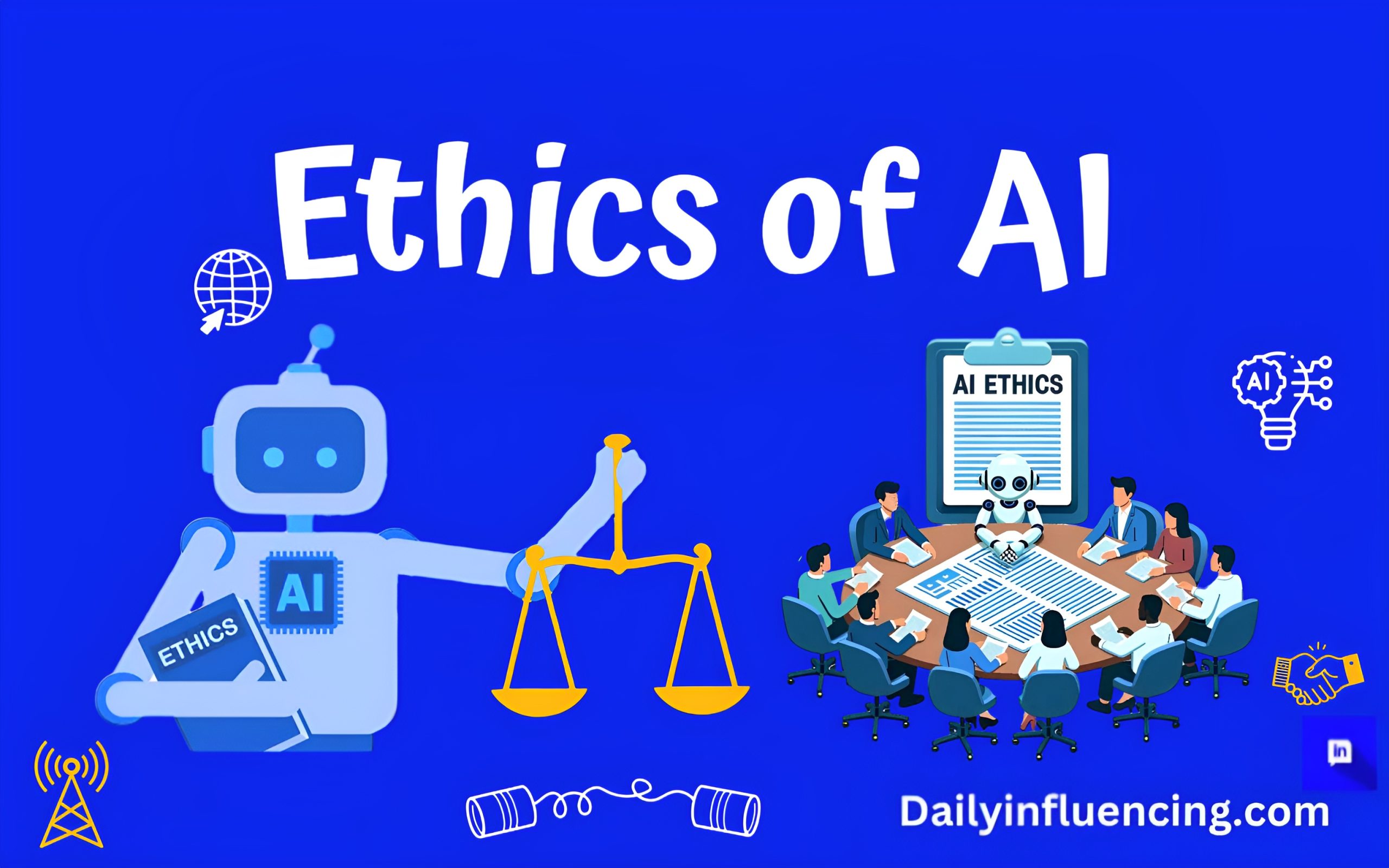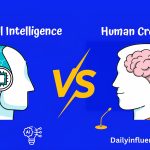
AI is rapidly becoming a part of our everyday lives, but with that rise comes serious ethical questions.
As business owners increasingly adopt AI, especially generative artificial intelligence to improve efficiency, customer experience and decision-making, ethical considerations have become more important than ever.
If you’re a business owner using or considering AI, you need to understand its ethical implications and how you can maintain your customer’s trust whilst using AI.
Therefore, this blog post will look into the ethics of AI and how these issues affect business owners and brands.
What is AI ethics?
AI ethics refers to the set of moral principles and guidelines that govern the development and use of AI technology.
These ethics help to ensure that AI systems benefits society, respect human rights while minimizing harm and negative consequences.
Generally, ethics simple means standards that define what is morally right or wrong. This covers different sectors like the family and the society.
The same way there are morally approved actions in the society and the ones frowned upon, that is the same way AI ethics is approved and the lack of it frowned upon.
AI ethics can include ensuring the safety of customer privacy and data and avoiding discrimination and bias.
Therefore, as AI continues to evolve and reshape industries and sectors, so too does its ethical challenges.
By making a conscious commitment with AI ethics, business owners can improve transparency, fairness and efficient customer experience.
Why AI ethics matter to business owners
Generative AI can produce impressive results—from creating realistic content to automating the decision making process.
Additionally, with data sourced from the internet, AI can recommend certain things to individuals based on past data.
Therefore, without these ethical guidelines in place, AI could potentially cause harm to both individuals and the society at large.
For business owners, ethical considerations are not only about doing the right thing. It’s about protecting your brand’s reputation, ensuring customers trust and maintaining customer’s privacy.
AI ethics need to be applied in the development and programming stage to avoid and reduce future risks.
There’s no doubt AI is here to stay, and these ethics help to ensure that AI is used in ways that can only benefit the society.
The key principles of AI ethics include fairness, accountability and transparency.
Additionally, ignoring AI ethics can have serious consequences for business owners while embracing them can improve decision-making, customer experience and contribute to long-term business success.
Ethical issues in AI and how to overcome them
Customer privacy and data security
AI thrives on data. The large data it is fed is what helps it create personalized informations for individuals. However, this reliance on personal data can raise a lot of privacy concerns.
Businesses need to navigate the ethical issues surrounding data privacy. Nobody would want their personal information to be at the mercy of a machine. This is why business owners need to become proactive when it comes to these AI ethics.
AI relies on different data pulled from different sources from the internet, but when this data is collected without consent from the individuals, it can lead to loss of customer trust.
So what do you do to curb this ethical issue?
Firstly, business owners should always ensure that customers are kept in the loop about how their personal data is being used. If there is any update on the privacy, the customers should be made aware of the changes.
Also, only data needed from the customer to improve marketing efforts should be requested for.
For instance, there is no need to ask for your customers address if it has nothing to do with your marketing campaign.
Lastly, store your customers personal data properly as a breach or a misuse of this data can lead to loss of trust which will impact sales negatively.
Bias and discrimination
AI systems learn from data and it can only be as good as the data it’s fed. And if the data contains biases, it will reflect in the AI’s output.
This can manifest in so many ways such as a biased hiring algorithm or a biased content generation.
When overlooked, this can lead to a damage on the brand’s reputation. Stakeholders, employees and customers expect brands to promote fairness and inclusion.
If your AI powered system shows bias, it reflects negatively on you and can harm your brand severely.
How do you avoid this ethical issue?
You always need to ensure that your AI model is trained on different datasets. Continuously monitor how the AI model works, audit it’s output to properly detect and correct any biases.
How to ensure ethics in AI
The principles of AI ethics includes accountability, transparency, reliability and human oversight.
—Accountability: Developers of AI model need to always take responsibility for the AI output. The moment you give an AI model the ability to make certain decisions, there is need to remember that it works with programming and algorithms and can’t decipher right from wrong.
—Reliability: AI models should be trained to serve humans as intended. Its features need to be robust in order to reduce risk and potential harm. AI models like ChatGPT has been built with robust features that helps in the day-to-day activities of its users.
—Transparency—Users should be able to understand how AI models make decisions and what data is being used. Consent is a key parameter when it comes to data usage.
—Human oversight: At the end of the day, AI is a machine created to help humans with day to day activities. Proper supervision is needed to prevent these machines from making harmful decisions.
Conclusion
Artificial intelligence (AI) has the ability to improve lives and revolutionize industries. However, it’s important to adopt AI with an ethical structure. As you incorporate AI into your business strategy, make sure to prioritize values that will create a long term relationship with your customers.
Transparency and accountability are two top values to hold onto.
AI ethics does not only ensure that users know how their data is being used, it also makes it easy to minimize harm and negative consequences that could breed from overlooking these ethics.
Follow Dailyinfluencing blog for more updates on digital marketing, sales and business growth.




